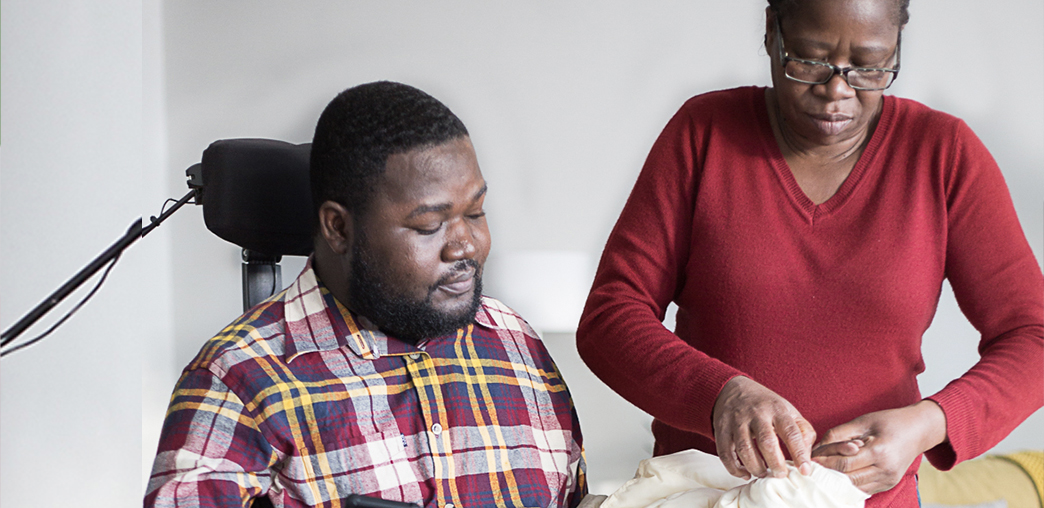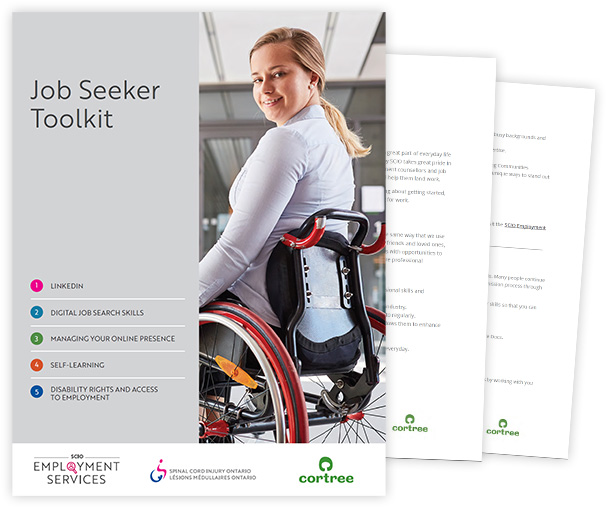Ontario Disability Training
Learning Plans & Courses
The first step towards providing better care for those with disabilities is understanding their lived experience and learning how to help make life more accessible using appropriate supports, assistive devices and technology.
We offer an amazing assortment of learning resources that are designed to facilitate a deeper, more compassionate understanding of the barriers people with disabilities experience each day, while teaching you some strategies you can use to help improve accessibility.
For anyone undergoing disability training in Ontario, our courses are designed to be clear, easy-to-follow and most importantly, break down some of the myths and stereotypes that affect people with disabilities.

Learning Plans

Getting Back on the Road
Just because someone has a disability doesn’t mean they shouldn’t still enjoy the freedom of being able to drive. This three-part learning plan discusses how to transfer in and out of vehicles, some modified controls that can assist with driving, and it demonstrates how an incredible range of vehicles can be modified to accommodate a huge variety of disabilities. A helpful primer for OTs and case managers working with people with disabilities.

Understanding SCI: Training for Attendants
In this six-part learning plan, Personal Support Workers follow through five eLearning modules and a downloadable PDF workbook designed to prepare you for the in-class or virtual component of this Ontario disability training program. Covering a broad range of topics from understanding spinal cord injury to preventing bladder or bowel problems, these modules are an invaluable resource if you’re going to be assisting people with spinal cord injury living in the community.
Individual Courses
This course will give you a brief overview of two important laws that are protecting people with disabilities in Ontario, as well as provide some insight into frequent barriers facing those with disabilities. You’ll learn about the AODA’s Customer Service Standard, and how you can use this information to provide excellent customer service for the people you’re helping.
This course is designed to help you better understand the positive roles that people with disabilities can serve in the workplace, as well as in the community. It covers what a disability could be, some common stereotypes, and helps you understand what living with a disability actually means.
Using the perspective of those who use wheelchairs for daily mobility, this course explains the process of selecting the right wheelchair to fit one’s needs. It covers the roles and responsibilities of those who are involved in the process, like healthcare providers, vendors and the family. This course will provide insight into what this decision means in practical terms for people with mobility disabilities, and will provide helpful context for physios, OTs and any ADP authorizer new to the field.
In this course, we introduce you to some considerations that need to be taken into account when building a safe, accessible and user-friendly space for food preparation. We’ll discuss topics like energy management, assistive devices and safety tips to protect those with different disabilities. This course will help introduce contractors, interior decorators and new OTs to the principles of Universal Design applied in the kitchen.
Having a disability doesn’t mean a person can’t still enjoy a healthy sex-life. In this course, we talk about some fears and misconceptions relating to sex and disability, ideas on planning ahead to conquer obstacles during sex, as well as suggest a few sex toy options which can help adapt to concerns about fatigue, mobility or sensation. Sex can be difficult to talk about for health care providers and patients alike. Whether you are a PSW, physio, OT or social worker, if you aren’t sure what to say, this course will help you rip off the bandaid.
A painful reality for many people with disabilities, pressure sores can have a huge negative impact on daily life. The good news is pressure sores are preventable. This resource covers what are pressure sores, how they can happen, and how to prevent them through safe transfers, regular skin checks and pressure relief. This resource is for people using wheelchairs for daily mobility and their health care teams.
People with spinal cord injuries may experience problems with bladder function. This course introduces surgical options that may be available for improving bladder control including bladder augmentation, urinary diversion and catheterizable channel. This course was designed in consultation with Urologists across Canada as a patient education resource for people with neurological conditions considering bladder surgery options.
This course was designed to help those with disabilities learn about several applications useful to help better navigate the world around them and enhance the accessibility of their mobile devices. This is a companion piece to the Accessible Technology: Smart Homes course. This course was sponsored by Bell Mobility.
With the rise in interconnected technology, a whole world of new smart home devices and controllers can be utilized to make the home more accessible for people with disabilities. This course is designed to discuss some of the current smart devices available and how they can improve accessibility. This course was sponsored by Bell Mobility.
Cortree Makes Training Easy
Courses
Available
24
Module
Lengths
20-30 minutes
Class
Size
Just you!
Difficulty
Easy for ANYONE to take
Format
100% online
Teaching Model
Self-led
Who Can Benefit from Cortree’s Courses?
- People with disabilities
- Friends & family of people with disabilities
- Employers & educators working alongside people with disabilities
- Health care providers & PSWs looking for disability training in Ontario
- Anyone looking to broaden their knowledge about disabilities, and learn about how they can be more inclusive in their daily interactions
